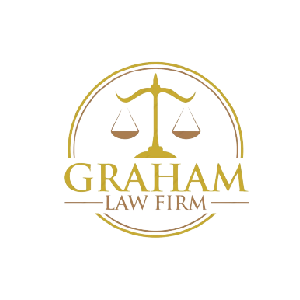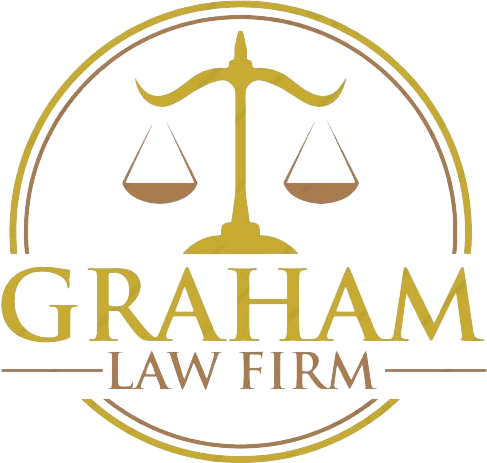Practice Areas
Graham Law Firm services a wide array of real estate professionals including, owners, developers, brokers, agents, escrow officers, contractors, engineers, landlords, tenants, title companies, involving commercial, residential, or industrial, from formation to conflict resolution. If you need to reach a deal, preserve a profit, avoid a pitfall, or resolve disagreements, Graham Law Firm provides real solutions.
Real Estate Professionals
GLF assists real estate professionals whether they are commercial, residential, or industrial agents, to successfully close a challenging real estate transaction or to avoid or resolve a litigation claim involving their sellers, buyers, lenders or borrowers. A realtor that may be concerned that his or her client or themselves may be sued, by an individual or the California Department of Real Estate, may benefit from a meeting with one of our attorneys, as we provide reliable advice on contract formation, conditions, covenants, provisions, mediation, conflict resolution, and a wide array of real estate needs.

Commercial and Residential Real Estate Attorneys
Graham Law Firm employs competent and experienced professionals in the areas of residential and commercial real estate law. Graham Law Firm is experienced in breach of contracts, fraud, misrepresentation, and foreclosure issues. A skilled and experienced commercial real estate attorney is essential to the complexities of buying and selling commercial properties. We specialize in purchase and sale contracts, coordinating successful closings, and navigating any lending technicalities.
Breach of Contract / Specific Performance
When a dispute arises between a buyer and seller after the sale or purchase of residential real estate, buyers sometimes assert claims of breach of contract against the seller. This can also arise in the context of a failed transaction, in which the seller has declined to close escrow, and the buyer sues to enforce the contract or seeks damages, or where the buyer has refused to complete the transaction after the contingencies have been removed.
Graham Law Firm can provide practical advice on how to avoid such disputes, or, if a breach of contract claim arises, how it can best be asserted or defended, depending on whether the client is a buyer or seller. We also provide clients with advice on how such claims are best avoided, so as to achieve the best possible outcome at the lowest possible cost to the client.
Fraud, Misrepresentation
Buyers and sellers of real estate often find themselves parties to claims in which either the buyer or seller has asserted claims for fraud or misrepresentation against the other. These claims frequently arise where, for example, a buyer claims that a seller failed to disclose material aspects of a home’s condition. Graham Law Firm is prepared to prosecute claims on behalf of buyers and can also defend such claims on behalf of sellers.
Foreclosure/lender-borrower Issues
In today’s economy, it is imperative that homeowners receive the right guidance in seeking the proper remedy that is available when facing foreclosure. It is critically important to avoid a trustee’s sale at all costs to avoid acquisition by a third party who will seek immediate eviction and resale of the property. Graham Law Firm can advise borrowers on loan modifications and other foreclosure avoidance measures such as short sales, deed in lieu of foreclosure options, and other negotiable resolutions.
Purchase and Sale of Property
Problems may arise involving purchase and sale agreements and Graham Law Firm is prepared to litigate these claims with a deep understanding of the intricacies as Monica Graham has over 30 years of experience in the real estate industry. We will take every step necessary to protect your interests and enforce the terms of your purchase agreement which may include specific performance, an emergency restraining order to maintain the status quo, liquidated damages provisions, disputes concerning escrow deposits, broker and agent representation disputes, rights of redemption, and more. It is possible that something may go wrong with the purchase and sale of the property, such as a missing or incorrect loan document or last minute title problem, which may jeopardize a closing. Our principal goal is to complete the transaction.
Financing Disputes And Litigation
We represent both lenders and borrowers in their financing disputes. We also counsel clients on ways to avoid these disputes by understanding and reviewing the terms of the loans. Whether it be a bank or individual borrower, we understand the issues that are involved with financing disputes and we undertake to impart that knowledge on our clients
Easements
An easement is generally the right to use the real property of another. This grants the right to use the property of another. Our experience includes negotiating easements, drafting and creating easements between adjacent landowners, and litigating easement disputes. We may help you negotiate a positive arrangement in which all parties may benefit.
Quiet Title and Partition Actions
In property ownership disputes we have experience in helping our clients resolve disputes concerning ownership of title to real property. These disputes often arise when co-owners of property disagree on whether or not they should retain ownership. We may bring a quiet title action and partition action, to help resolve these disputes. In these matters, we take all appropriate steps to make sure our client’s interest in the property is protected, which often includes recording a lis pendens on the property at the county recorder’s office. In addition, we actively pursue settlement of these disputes to help avoid costly court costs and receiver costs.
Nondisclosure
We have experience in representation of clients with actions against the sellers of real property arising out of the seller’s failure to disclose defects in the real property that the seller sold. We investigate the nature of the problem, help our clients understand the cost to fix it, and then actively protect our clients rights. If a buyer discovers a defect in the property and the buyer thinks that the seller knew about the defect, the buyer may be entitled to damages for the seller’s failure to disclose. However, so long as the defect is disclosed in writing, there is often no liability for the defect. Depending on the time of the disclosure (early negotiation stages, late in escrow) the buyer may be entitled to damages for the seller’s failure to disclose.
LANDLORD / TENANT
Landlord – Tenant Law
Graham Law Firm represents both landlords and tenants in real estate disputes.
Landlord: Our firm provides representation to protect the landlords’ rights while maximizing their profit for both residential and commercial properties. In the eviction process, our experience, both substantively and procedurally, with all applicable laws, is valuable in order to avoid delays, unnecessary expenses, and possible liability to the tenant for wrongful eviction and/or criminal sanctions.
Tenant: Graham Law Firm provides representation to protect the tenants’ rights in situations where they are facing unwarranted eviction or other legal disputes where they have been taken advantage of by negligent landlords.
Unlawful Detainer
Unlawful Detainer is the process by which a commercial or residential landlord evicts a tenant for failure to pay rent or failure to comply with a covenant in the lease. We offer counsel throughout the process, which includes drafting 3 Day Notices, 30 Day Notices, complaints, judgments, and writs of possession which cause the Sherriff’s Department to serve a notice to vacate.
Restraining Order – Get The Help You Need to Protect Yourself.
Unfortunately, thousands of people are victims of harassment, domestic abuse, stalking, and sexual assault every year. Protecting yourself from a dangerous acquaintance, love interest, or family member can sometimes require you to get a restraining order against them. Learn more about restraining orders and how to obtain one below.
What is a Restraining Order?
A restraining order (sometimes called a “protective order”) makes it a criminal offense for an abusive partner to come near you and/or contact you in any way. Restraining orders can be an effective tool to protect you against an abuser. Some of the most common ways it can protect you include:
Your abuser can face criminal penalties for contacting you.
Filing for a restraining order helps to establish a record of abuse and makes it easier to pursue criminal charges in the future.
Encourages the police and other authorities to take additional steps to protect you.
Can force your abuser to move out of the house.
What a Restraining Order Can’t Do?
While an order of protection can be a powerful tool, it does not 100% guarantee your safety. A restraining order can’t guarantee that an abusive partner will be out of your life (especially if you have children together). Furthermore, it does not stop an abusive partner from making threats, harassing, or attempting to intimidate you. These types of orders make it less likely for your abuser to hurt you but does not guarantee it.
Steps to Get an Order of Protection.
The exact process of getting a restraining order will vary depending on the state you live in. However, you can generally expect to take the following steps when obtaining a restraining order.
Document the abuse (i.e. pictures, notes, witnesses, etc.)
File a petition and for a temporary order of protection
Attend the hearing
Await the judge’s decision
There are many unique issues that can affect the type of restraining order you file for as well as the judge’s likelihood of approving your petition.
What Happens After You File?
If you file for a temporary order of protection, a judge will usually make an immediate decision based on the evidence that you provide. The temporary order is typically in place until there is a hearing concerning a long-term protective solution. If the judge issues a permanent restraining order, your abuser will be required to follow the rules of the order indefinitely or face criminal penalties.
Legal Help With Getting A Restraining Order
In many cases, those petitioning for a restraining order against their ex must attend a hearing at the same time as their abuser. This can be intimidating and influence your testimony and ability to communicate effectively to a judge.
Graham Law Firm is prepared to help the victims of domestic abuse to protect themselves via a protective order and help you to file paperwork, present compelling evidence, and stand up to your abuser in court.
Obtaining a temporary and/or permanent restraining order is possible to do on your own. However, partnering with Graham Law Firm can help to substantially increase the odds of a judge granting your petition.
Contract disputes can be messy with a lot at risk. If you find yourself on either side of one – accused of breaching a contract or alleging breach by the other party – an experienced attorney can help guide you to a satisfactory solution.
Whether it involves real estate, employment, business, or a personal matter, it’s crucial to make sure you get good advice on how to proceed. A lawyer with experience in contract disputes will be able to analyze your situation, explain the relevant law to you, and develop a strategy for going forward.
Getting sound legal advice early on could be the most important step you take toward protecting your interests. With any type of contract dispute, you will want to understand your options and chances for success. Whether you try to negotiate a settlement with the other party or end up in court, you will want a capable and experienced lawyer there with you.
You Need Legal Help with a Consumer Protection Problem?
If you feel your rights as a consumer have been violated, you should seek the counsel of a skilled consumer protection lawyer to help you seek justice.
Different Types of Consumer Protection Issues
Consumer Protection laws are in place to protect people from deceitful or fraudulent business practices. The main focus of these laws is to protect consumers’ health and safety as well as to help them make informed choices when purchasing products.
Turn the tables on bad debt collectors under the Fair Debt Collection Practices Act and California’s Rosenthal Fair Debt Collection Practices Act. Hold creditors accountable under the Fair Credit Reporting Act and make robo-callers pay for those annoying and harassing phone calls under the Telephone Collection Practices Act.
Businesses can seek to sell products under false information or they may falsely advertise products in order to make their next sale. When a business puts their financial interest in front of your health and safety, they have violated your consumer rights.
Whether you are a victim of consumer fraud, a business scam, or have a products liability claim it is wise to seek the advice of a skilled consumer protection attorney as soon as possible.
Wills, Living Trusts & Estate Planning
To understand what estate planning services you may need, you need to start with a basic knowledge of the probate system and today’s legal and tax environment. Our goal is to provide fundamental information so that you can make informed decisions regarding your own estate planning needs.
We provide our clients with quality estate planning services at affordable prices. A revocable living trust is usually the foundation of most estate planning, but a complete estate plan also needs to include pour-over wills, durable powers of attorney, advanced health care directives, and other related documents depending on your needs, desires, and specific family situation.
Many people put off doing estate planning because they think it might be too expensive. Some lawyers have a reputation for being “high priced.” We understand that and we want to be different. Most of our legal fees are based on flat rate pricing from simple one page documents to the traditional estate planning packages. We offer discounts for many organizations including AARP (American Association of Retired Persons) and DAV (Disabled American Veterans) members. We are also preferred legal service providers and provide discounted legal fees for police, fire, and teachers’ associations. We also offer those discounts to new clients who are referred to us by our existing clients.
Trusts and Other Estate Planning Documents
A living trust is a revocable trust that is set up during your life. Living trusts are also commonly referred to as “revocable trusts” or “inter vivos trusts.” Basically any revocable trust is a “living trust.”
A living trust is intended to hold assets. Once created, the goal will be to make sure your assets are titled in the name of your living trust. You, as the Trustee of your living trust, maintain complete control of the trust (and assets) during your life and can add or remove assets as you wish. Upon your death, the assets in the trust are distributed by the successor trustee (usually your spouse or another loved one) to your named beneficiaries. All assets in the trust will pass to your named beneficiaries without having to go through the probate process.
Do I Need a Living Trust?
In the very simplest terms, if you own real estate or have children, you should probably have a living trust in your estate planning.
Living trusts are designed to pass your assets to loved ones with minimal complications and expense. Even if all you own is your home, a living trust is usually recommended. In fact, it is very common that the primary asset of a trust is the family home. When it comes to any type of real estate assets, there simply is no better estate planning device than the living trust.
If you own no real estate and have less than $150,000 in assets, the cost and time invested in creating a living trust may not be worthwhile. Nevertheless, some estate planning is still essential. Keep in mind that estate planning is much more than just a living trust. It also includes the documents summarized below that every person should have regardless of the size of their estate.
What to do When Someone Dies Without a Trust
When a loved one passes away and the person did not have a living trust, or left assets out of his or her trust, it is possible that the assets may need to go through probate before the heirs or beneficiaries under the person’s will can actually inherit the property.
In addition to assets held in the name of a living trust, probate is usually not necessary for assets that fall into the following categories:
Real estate that owned in joint tenancy with the decedent
Financial accounts that are jointly owned with the decedent
Financial accounts that have beneficiaries/TODs/PODs designated
Financial accounts that are held “In Trust For” another person
Additionally, full probate can usually be avoided for any assets that don’t meet the above criteria so long as the combined total gross value of those assets is less than $150,000. Please note that other court procedures may still be required.
If you think probate may be necessary, please schedule a free consultation to discuss.
Landlord – Tenant Law
Graham Law Firm represents both landlords and tenants in real estate disputes.
Landlord: Our firm provides representation to protect the landlords’ rights while maximizing their profit for both residential and commercial properties. In the eviction process, our experience, both substantively and procedurally, with all applicable laws, is valuable in order to avoid delays, unnecessary expenses, and possible liability to the tenant for wrongful eviction and/or criminal sanctions.
Tenant: Graham Law Firm provides representation to protect the tenants’ rights in situations where they are facing unwarranted eviction or other legal disputes where they have been taken advantage of by negligent landlords.
Unlawful Detainer
Unlawful Detainer is the process by which a commercial or residential landlord evicts a tenant for failure to pay rent or failure to comply with a covenant in the lease. We offer counsel throughout the process, which includes drafting 3 Day Notices, 30 Day Notices, complaints, judgments, and writs of possession which cause the Sherriff’s Department to serve a notice to vacate.


